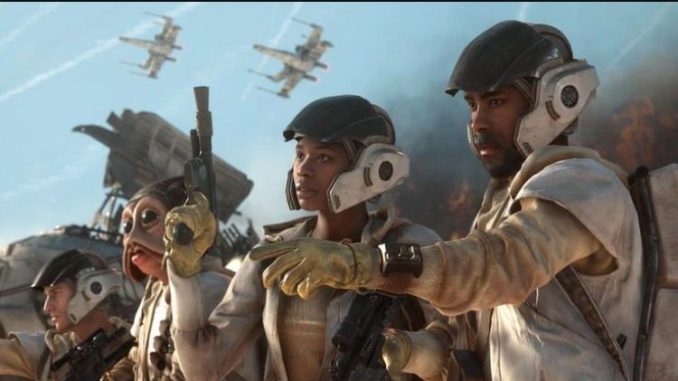
The Path Less Traveled is a regular series in which I’ll be examining a single specialization from the Star WarsEdge of the Empire/Age of Rebellion/Force and Destiny lines of games. The purpose and hope is to take a look at a specialization that perhaps many players might overlook or ones that are somewhat new to the game lines. We will look at strengths and weaknesses, synergies with other species and specializations, roles in a party, how to incorporate them into a campaign, and perhaps some uses which are not always obvious at first glance.
Overview
This edition of The Path Less Traveled comes in from Chase LeMaster from the d20 Facebook page. It’s a specialization that no one in any of my campaigns has chosen, and I’ve not heard of it used much at all. That specialization is the Recruit. Considered a “generic” specialization, it sits apart in the Age of Rebellion Core Rulebook and is often overlooked and not considered. It is not a career specialization; however, it is considered a career specialization for any and all characters, as it only costs 10XP times the number of specializations the PC has. But after taking a closer look at the Recruit specialization, it can make a character quite potent in specific areas. So let’s dive into the Recruit… you might be missing something you want for your character!
Skills and Characteristics
Rebel operatives are trained in physical fitness, awareness, and general knowledge in many different skills for different situations. As the Recruit is not a part of any specific career, there are no career skills to review that the Recruit automatically receives. But the Recruit, if chosen, gets to add Athletics, Discipline, Survival, and Vigilance as career skills. Notice there are no combat skills in this list, which many find peculiar. But remember that the Rebel Alliance is filled with all types of members from leaders, diplomats, engineers, doctors, and so on. Not everyone that works for the Alliance carries a gun. These skills cover the characteristics of Brawn, Cunning, and Willpower, with Willpower covering Discipline and Vigilance. So, if one wants to consider the Recruit, while it’s meant to be able to blend with almost all types of characters, you might consider those three characteristics when adopting a Recruit specialization.
Species
Because the Species you choose is predicated mostly on the career you choose, I don’t recommend focusing your Species selection on the Recruit specialization. However, if you want to focus on Brawn or Cunning or Willpower, there are a few Species that might maximize the capabilities of the Recruit. Funny, the one at the top of the line, with a 3 in Brawn and Willpower, and a 2 in Cunning is the Hutt. Can’t imagine too many Hutt Rebel Recruits. After that, Species with a 3 in Willpower and 2s in Brawn and Willpower are the Chagrian, Dressellian, Gand, Iktotchi, Ithorian, Quarren, and Zabrak. Those would statistically make most use of the skills the Recruit has as career skills, but again, the Recruit can blend with almost any PC.

Talents
The talent tree of the Rebel Recruit is designed to do three things: add new career skills for use in the Rebellion, be tougher in fights, and add talents that can be used in a good fight with the Empire. So let’s examine the three types in the tree. First, the Recruit tree lets you add many career skills that you might not have if you chose a non-combat/non-pilot spec. Skills like Brawl, Ranged (Light), Melee, Ranged (Heavy), Gunnery, Piloting (Planetary), and even Knowledge (Core Worlds), and Knowledge (Outer-Rim).
The second type, how to be tougher in fights, is where the Recruit tree has three more ranks of Toughened, and two more ranks of Grit in the tree. Rounding out that category is Enduring, adding to your soak.
This brings us to the final category, useful talents for a Rebel. Second Wind has three ranks in the tree, letting you recover a lot of strain whenever you need it. Quick Draw and Jump Up let you save needed maneuvers for more important things. Creative Killer lets you reduce the crit rating of improvised weapons for when your bar fights break out, and Dynamic Fire lets you more easily shoot at an engaged enemy with a ranged attack if you need to. Last, don’t forget, Dedication is in the bottom of this tree just like every other specialization tree.
Specialization Synergy and Character Concepts
This might be the easiest section to write about the Recruit and one of the easiest sections in the Path Less Traveled series of articles. The reason is that the Recruit is a universal specialization and is designed to be compatible with any type of specialization from any of the three game lines. Not only is it supposed to be, but it succeeds beautifully.
If you chose a character that is non-combat focused, and find yourself not really able to handle yourself in fights, wondering what to do, this specialization might be exactly what the doctor ordered. It is often ignored by the combat specs because their trees give them more powerful abilities, and that is true. One of the other great aspects of the Recruit tree is that if you only need a handful of Recruit talents to make yourself viable as a Rebel, you only need dive that far down in the tree.
If you’re a Mechanic who can’t handle a gun, or a Diplomat that needs to know how to fly a speeder, or an emergent Force-sensitive who joins the cause of the Rebel Alliance, the Recruit tree is not one to pass over. Now that I’ve played the game solid for a full year, the Recruit tree looks much more useful than generally it does at a player’s first look. When you flip through the Age of Rebellion Core Rulebook, you are bombarded with specialization after specialization with awesome, and amazing talents in them that a Rebel can use, making the Recruit a very “bland” looking spec.
But look again… the Recruit just might be the thing that takes your character to a new level.

The big problem I have with Recruit is the high entry cost. At a minimum of 20 XP, you have to really want a lot from the Recruit to make it worthwhile. If you’re just a “Mechanic who can’t handle a gun, or a Diplomat that needs to know how to fly a speeder”, you’re better off paying the 5 XP/rank non-career penalty than dropping 20 XP on a new spec plus the cost of the actual training talent. Plus there’s a big opportunity cost here — you have to pay the 25+ XP up front to make the skill in question a career skill before you can even start buying ranks. Even if you intend to buy more ranks later, that same 25 XP could buy you two non-career ranks *right now* instead of a few sessions down the road.
Sure, once you have a Combat Training talent or whatever, you can continue down the tree to get some more combat talents, and it may be worthwhile if you also want to buy into some Survival or Vigilance or something. But you kind of have to have something more in mind than getting a few ranks of a couple skills to make it worth the price of entry.